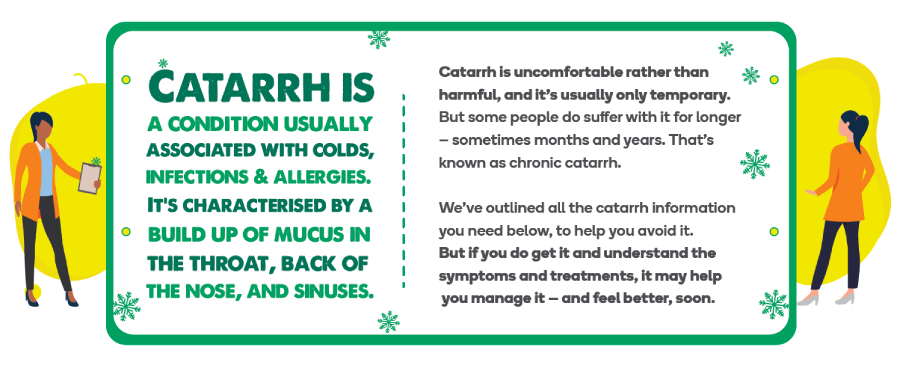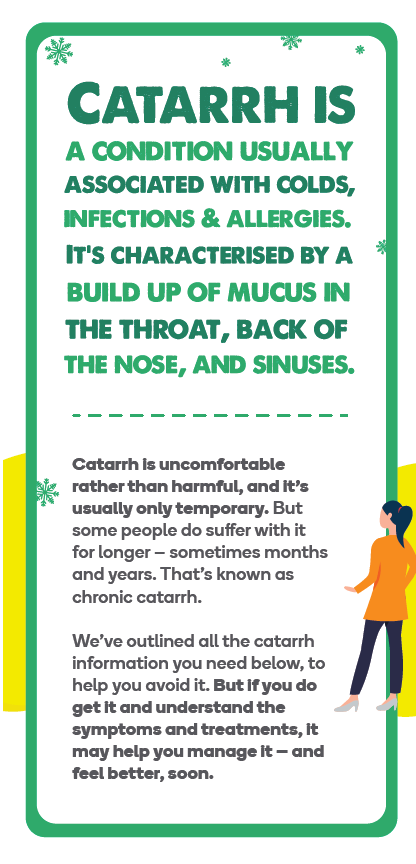

The body produces mucus as a response to infection or irritation, when the lining of the nose and throat become inflamed and swollen.
It’s not known what causes chronic catarrh, but it’s thought to be associated with extra sensitivity to mucus, or an abnormality in the way it moves within the nasal cavaties.















Consider taking a herbal remedy from a health shop or chemist.
A pharmacist can help, if you’re unsure.
Consult a GP if your catarrh persists, isn’t improving with care, or you’re experiencing a lot of discomfort. You may be referred to a specialist, who can test for underlying conditions, such as allergies or nasal polyps. These can be treated accordingly.

